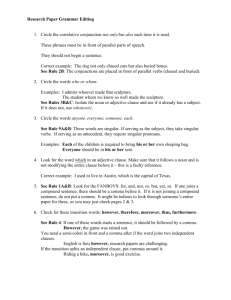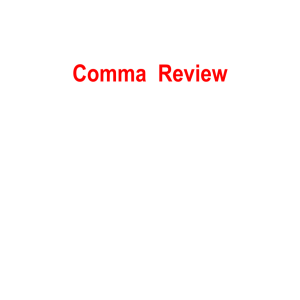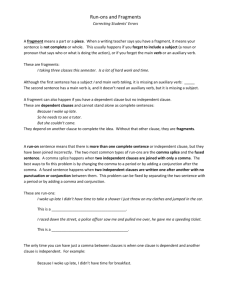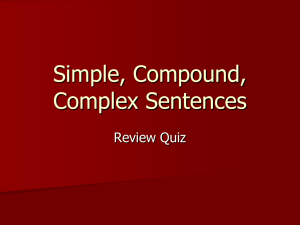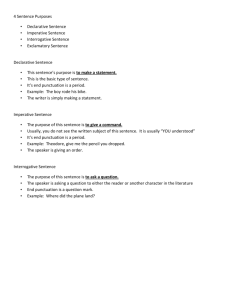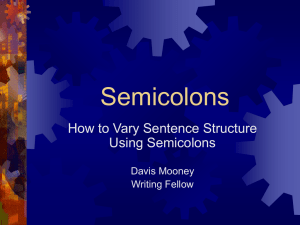Compound Sentence PR
advertisement
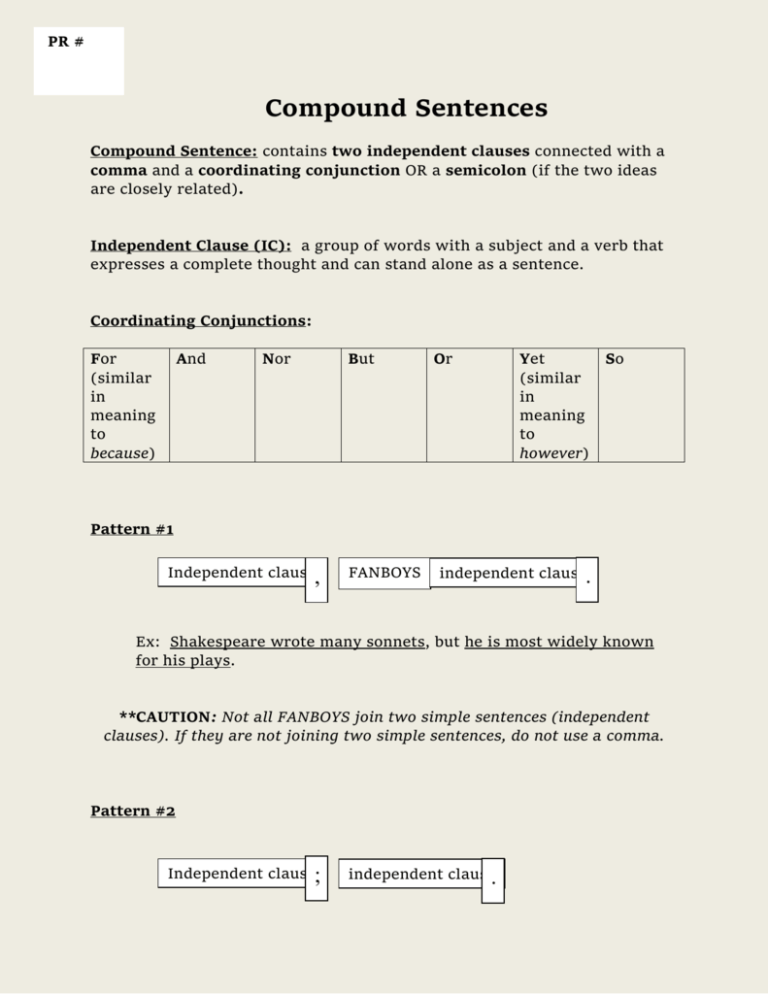
PR # Compound Sentences Compound Sentence: contains two independent clauses connected with a comma and a coordinating conjunction OR a semicolon (if the two ideas are closely related). Independent Clause (IC): a group of words with a subject and a verb that expresses a complete thought and can stand alone as a sentence. Coordinating Conjunctions: For (similar in meaning to because) And Nor But Or Yet (similar in meaning to however) So Pattern #1 Independent clause, FANBOYS independent clause. Ex: Shakespeare wrote many sonnets, but he is most widely known for his plays. **CAUTION: Not all FANBOYS join two simple sentences (independent clauses). If they are not joining two simple sentences, do not use a comma. Pattern #2 Independent clause; independent clause. Ex: Shakespeare was a prolific writer; he penned hundreds of plays and poems. **CAUTION: The word that follows the semicolon IS NOT CAPITALIZED. Pattern #3 Independent clause; conjunctive adverb , independent clause. Ex: Shakespeare wrote many sonnets; however, he is most widely known for his plays. **CAUTION: The conjunctive adverb may look like a coordinating conjunction, but it is not as strong. Therefore, the semicolon is used to link the two main clauses, and the comma is used to set off the conjunctive adverb from its main clause. Common Conjunctive Adverbs: accordingly, also, anyway, besides, certainly, consequently, finally, further, furthermore, hence, however, incidentally, indeed, instead, likewise. meanwhile. moreover, namely,, nevertheless, next, nonetheless, now, otherwise, similarly, still, then, thereafter, therefore, thus, undoubtedly, BEWARE OF IMPOSTERS!! NOT a FANBOYS !! 1. INCORRECT: Sandy felt chagrin when she burped in class because all the kids laughed at her. CORRECT: Sandy felt chagrin when she burped in class, for all the kids laughed at her. NOT an independent clause (can’t stand alone as a sentence) 2. INCORRECT: Steve ruefully confessed to the murder, and was arrested on the spot. CORRECT: Steve ruefully confessed to the murder, and he was arrested on the spot. NOT an independent clause (can’t stand alone as a sentence) 3. INCORRECT: After he found her fingerprints at the crime scene, Detective Goulash deduced that Robyn was the culprit. CORRECT: He found her fingerprints at the crime scene, so Detective Goulash deduced that Robyn was the culprit. RUN-ON: two independent clauses “mushed” together without a conjunction 4. INCORRECT: Paul realized he was lost inside the cornfield labyrinth he started shouting for help. CORRECT: Paul realized he was lost inside the cornfield labyrinth, so he started shouting for help. COMMA SPLICE: comma alone can’t join 2 independent clauses 5. INCORRECT: April used chicanery to convince her parents to buy her a new phone, she told them hers was broken. CORRECT: April used chicanery to convince her parents to buy her a new phone, for she told them hers was broken.



